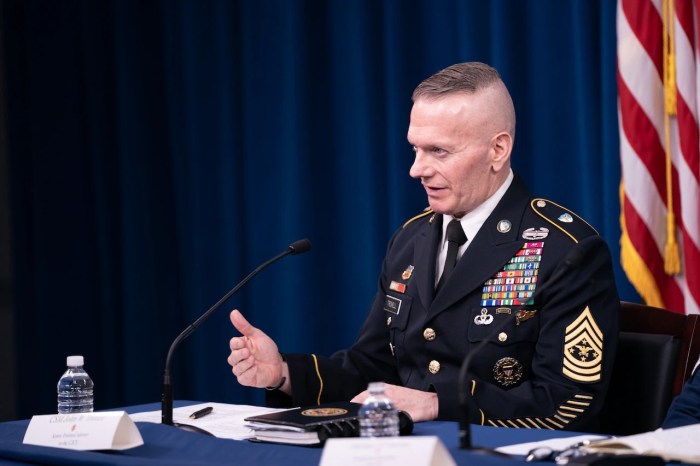The principle that the senior ranking military member should never take command is a fundamental tenet of military leadership. This principle ensures that the most experienced and qualified individuals are making decisions and leading troops, fostering effective operations and maintaining morale.
Understanding the significance of this principle and its implications for military leadership is crucial for both military personnel and scholars.
Throughout history, there have been numerous examples of both adherence to and violation of this principle. By examining these instances, we can glean valuable lessons about the importance of maintaining a clear chain of command and the consequences of deviating from it.
1. Understanding the Principle

The principle that the senior ranking military member should never take command is a fundamental tenet of military leadership. It holds that, in order to maintain the integrity and effectiveness of the military hierarchy, the most senior member should not assume direct command of a subordinate unit.
This principle is based on the understanding that the senior member’s role is to provide guidance, oversight, and support to their subordinates, rather than to micromanage or directly interfere with their operations. By maintaining a distance from the day-to-day operations, the senior member can provide a more objective and strategic perspective, and avoid the potential for conflicts of interest or favoritism.
2. Historical Context and Examples
Throughout history, there have been numerous examples of both adherence to and violation of this principle. In the Roman army, for instance, the senior commander was typically a consul or proconsul, who would delegate the day-to-day command of the legions to their subordinates.
Conversely, in the Prussian army during the Napoleonic Wars, the senior commander, Field Marshal Gebhard von Blücher, was known for his tendency to take direct command of his troops in battle. This often led to confusion and disorganization, as the subordinates were unsure who was in charge.
3. Exceptions and Considerations
While the principle that the senior ranking military member should never take command is generally sound, there may be exceptions in certain circumstances. For example, in a crisis situation where the subordinate commander is unable to effectively lead, the senior member may need to intervene to prevent the unit from becoming ineffective or endangering itself.
In making such a decision, the senior member should carefully weigh the potential benefits and risks. They should consider the severity of the situation, the competence and experience of the subordinate commander, and the potential impact on the morale and discipline of the unit.
4. Leadership Implications, The senior ranking military member should never take command
The principle that the senior ranking military member should never take command has significant implications for military leadership. It reinforces the importance of delegation, trust, and accountability.
By delegating authority to subordinates, the senior member can empower them to make decisions and take ownership of their responsibilities. This helps to develop their leadership skills and prepare them for higher positions.
5. Contemporary Applications
The principle of senior military members not taking command remains relevant in modern military operations. In joint and multinational operations, for instance, it is essential for the senior member to maintain a neutral and impartial stance, and to avoid giving preferential treatment to any particular unit or nation.
Recent conflicts, such as the Iraq War and the War in Afghanistan, have demonstrated the importance of this principle. In these conflicts, the senior commanders were able to provide effective leadership by delegating authority to their subordinates and maintaining a strategic perspective.
Clarifying Questions: The Senior Ranking Military Member Should Never Take Command
What are the exceptions to the principle that the senior ranking military member should never take command?
There may be exceptional circumstances where the senior ranking military member takes command, such as in situations where there is a lack of qualified junior officers or during emergencies.
How does this principle impact decision-making?
This principle ensures that decisions are made by the most experienced and qualified individuals, leading to more informed and effective decision-making.
What are the consequences of violating this principle?
Violating this principle can lead to confusion, decreased morale, and ineffective leadership.

